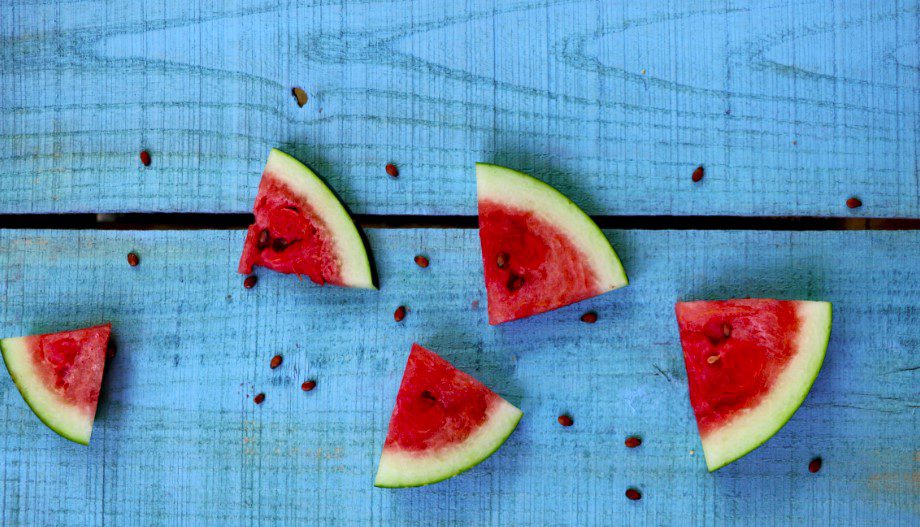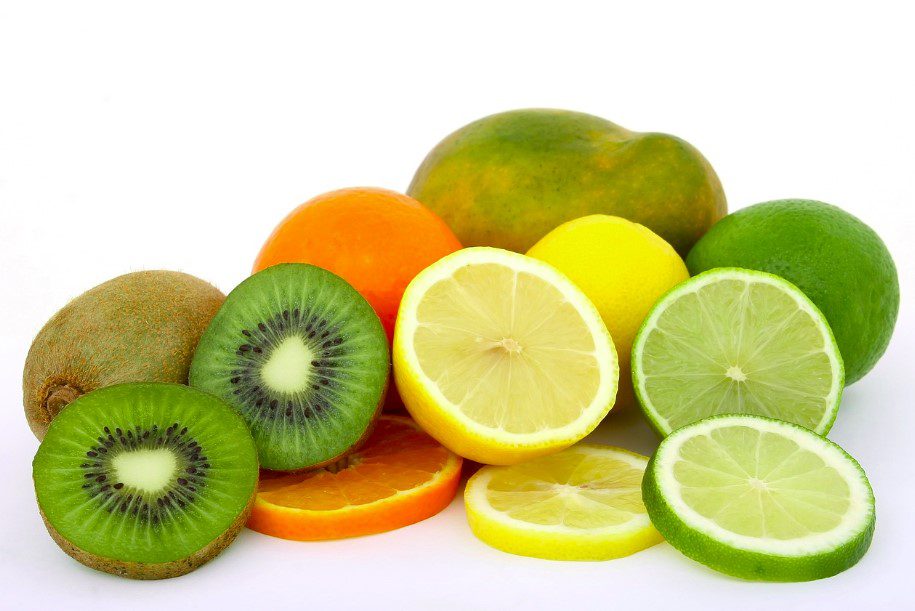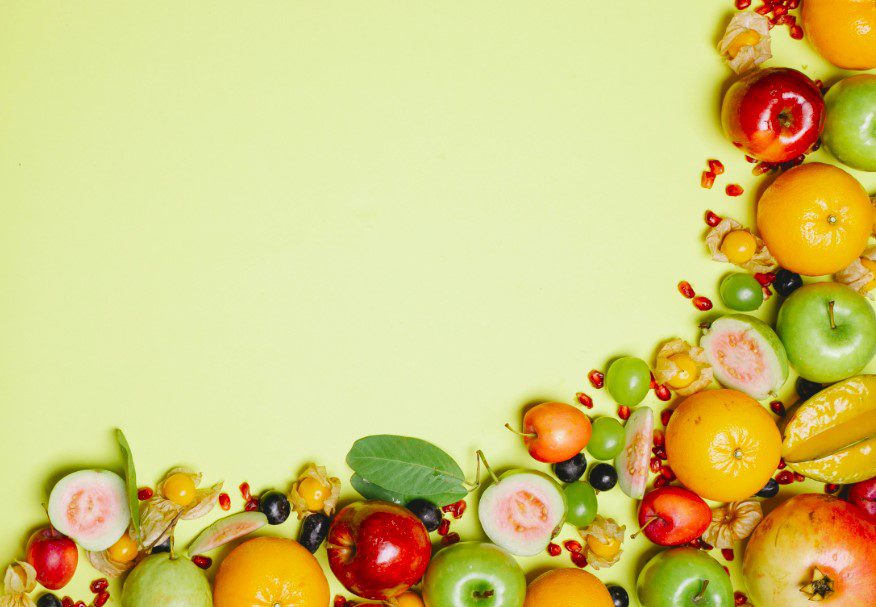Most of us tend to discard the fruit seeds without realizing they can be a wonderful source of nutritional benefits. Yes, seeds in fruits are typically small, but they contain trace amounts of potentially beneficial compounds, such as dietary fiber, antioxidants, and select nutrients.
Seeds are found in popular fruits such as oranges, melons, passion fruit, apples, kiwis, papayas, pomegranates, and pears.
However, many fruit seeds also contain a compound called amygdalin, which is a cyanogenic glycoside that can release small amounts of cyanide when consumed in large quantities.
While the cyanide content is extremely low and unlikely to cause harm in typical consumption, it is always better to err on the side of caution and avoid deliberately consuming these particular fruit seeds in large quantities.
Here are a few Fruit Seeds you Can Eat:

Let’s explore how these seeds can enhance our well-being and overall health.
1. Orange Seeds for Fiber
Oranges are a popular citrus fruit known for their juicy pulp and refreshing taste. But did you know that the seeds of oranges can also contribute to your health? Orange seeds are rich in dietary fiber, healthy fats, and antioxidants. These components can aid in digestion, promote heart health, and support the immune system. Consuming orange seeds can provide a slight crunch and a burst of nutrients to your diet.
2. Melon Seeds for Healthy Fats
Melons are a summer favorite, offering a sweet and hydrating treat. They are an excellent source of protein, healthy fats, and essential minerals such as magnesium, zinc, and potassium. These seeds can improve digestion, support bone health, and provide nourishment for the body. Don’t hesitate to include melon seeds in your diet for an added nutritional boost.
3. Passion Fruit Seeds for Fiber
Passion fruit is renowned for its great flavor and vibrant color. But what about the seeds? Passion fruit seeds are entirely edible and offer various health benefits. They are rich in fiber, vitamin C, and essential fatty acids. Incorporating passion fruit seeds into your diet can aid in digestion, boost the immune system, and promote healthy skin. So, don’t discard those seeds; they are small powerhouses of nutrition.
4. Kiwi Seeds for Antioxidants
Kiwi, with its vibrant green flesh, is a delicious and nutrient-dense fruit. But did you know that the seeds of kiwi are also packed with goodness? Kiwi seeds are high in omega-3 fatty acids, fiber, and antioxidants. They can aid in digestion, support cardiovascular health, and contribute to radiant skin. Instead of discarding the seeds, consider blending them into smoothies or sprinkling them on top of salads for an extra nutritional boost.
5. Papaya Seeds fo Healthy Fats
Papaya is a tropical fruit known for its vibrant color and sweet taste. While most people discard the seeds, they actually offer a range of health benefits. Papaya seeds contain papain, an enzyme that aids digestion and supports gut health. Additionally, these seeds possess antibacterial properties and are rich in antioxidants, which can help strengthen the immune system. So, next time you enjoy a papaya, consider incorporating the seeds for an added nutritional advantage.
6. Pomegranate Seeds for Antioxidants
Pomegranates are often praised for their antioxidant content and numerous health benefits. Beyond the juicy arils, pomegranate seeds also provide valuable nutrition. Pomegranate seeds are rich in antioxidants, including punicalagins and anthocyanins, which can combat inflammation and protect against chronic diseases. These seeds can be enjoyed as a snack or sprinkled on top of yogurt, salads, or desserts for an extra nutritional punch.
7. Pear Seeds Rich in Minerals
Pears are a sweet and juicy fruit enjoyed by many. While pear seeds are not as commonly consumed as the fruit itself, they can still offer some nutritional benefits. Pear seeds contain healthy fats, fiber, and minerals like magnesium and potassium. Incorporating a few pear seeds into your diet can add a mild nutritional boost to your overall intake.
8. Guava Seeds for Gut Health
Guava seeds offer numerous health benefits. They are rich in dietary fiber, promoting a healthy digestive system, regular bowel movements, and gut health. The seeds contain healthy fats that aid in bodily functions, nutrient absorption, and heart health.
Guava seeds are an antioxidant powerhouse, protecting against oxidative stress and supporting the immune system. They may also have anti-inflammatory properties, reducing inflammation and promoting overall well-being. Guava seeds are a natural source of essential minerals like magnesium, potassium, and calcium, essential for nerve function, bone health, and blood pressure regulation.
9. Apple Seeds for Antioxidants
Apples are one of the most widely consumed fruits worldwide, and their health benefits are well-known. However, many people tend to remove the seeds without realizing their benefits.
Apple seeds contain healthy fats, including monounsaturated and polyunsaturated fats, which support overall well-being. Additionally, apple seeds are a good source of dietary fiber, and can aid digestion. They promote feelings of fullness, and supporting a healthy digestive system.
Apple seeds also contain trace minerals like calcium, magnesium, and phosphorus that support bone health and various bodily functions. Furthermore, they contain antioxidants that help protect against oxidative stress and cellular damage.
Remember though to consume apple seeds in moderation as part of a balanced diet for optimal health benefits. These seeds also contain amygdalin, which is a compound that can be converted into cyanide in the body. Although the cyanide levels are minimal and harmless when consumed in moderation, it is advisable not to consume them excessively.
So, while it’s safe to eat a few apple seeds, it’s best to enjoy the fruit and leave the seeds aside.
FAQs on Eating Fruit Seeds

Q: Can eating fruit seeds improve digestion?
A: Yes, many fruit seeds, such as those found in oranges, melons, kiwis, and papayas, are high in dietary fiber. Fiber promotes healthy digestion by adding bulk to the stool, to aid regular bowel movements.
Q: Do fruit seeds have any potential health risks?
A: While most fruit seeds are safe to consume, some may pose risks. For example, excessive consumption of apple seeds can lead to cyanide toxicity. It’s important to be aware of the specific properties of each fruit seed and consume them in moderation.
Q: Can I plant fruit seeds to grow my own fruit trees?
A: Yes, many fruit seeds can be planted to grow fruit trees. However, keep in mind that the resulting tree may not produce fruits identical to the parent fruit due to cross-pollination. Additionally, growing fruit trees from seeds can be a lengthy process, often taking several years to bear fruit.
Q: Are there any creative ways to incorporate fruit seeds into recipes?
A: Absolutely! Fruit seeds can add texture, flavor, and nutritional benefits to various dishes. You can blend them into smoothies, sprinkle them on salads or yogurt, bake them into bread or muffins, or even use them as a topping for desserts.
Q: Can eating fruit seeds replace consuming the whole fruit?
A: While fruit seeds offer some nutritional benefits, they should not be considered a complete replacement for consuming the whole fruit. Fruits provide a wide array of vitamins, minerals, and phytochemicals that may not be present in the seeds alone. It’s best to enjoy fruits in their entirety for optimal nutrition.
Conclusion
It is important to be mindful of any potential risks associated with specific fruit seeds, such as apple seeds. Exercise moderation and consult with a healthcare professional or nutritionist if you have any concerns about eating these seeds.
It’s important to note that while fruit seeds may pose potential risks, eating them accidentally in a small number is unlikely to cause harm.





Leave a Reply